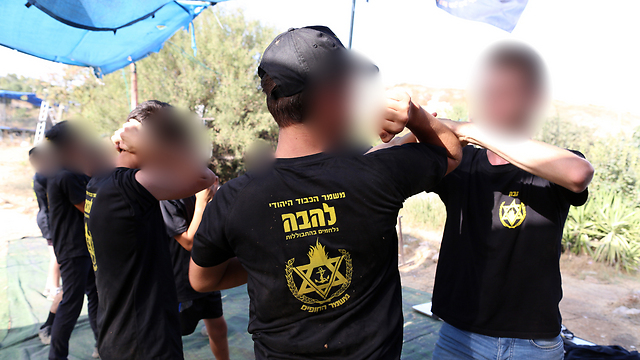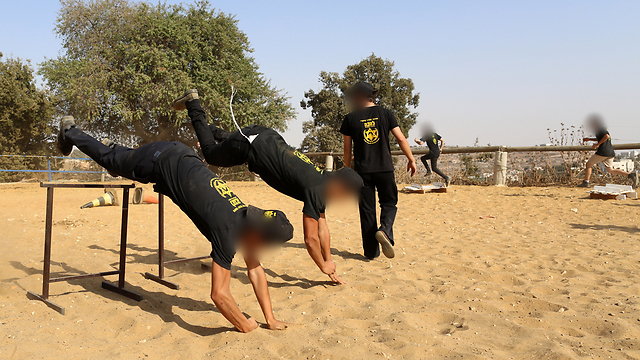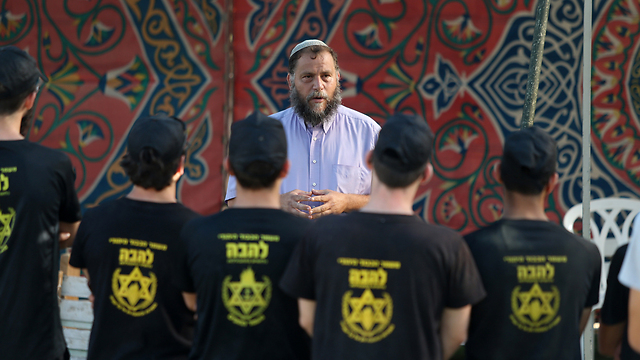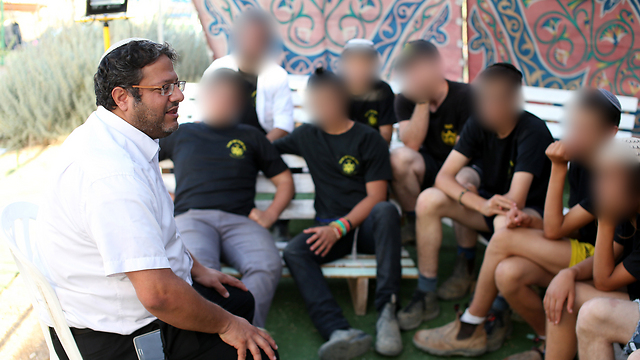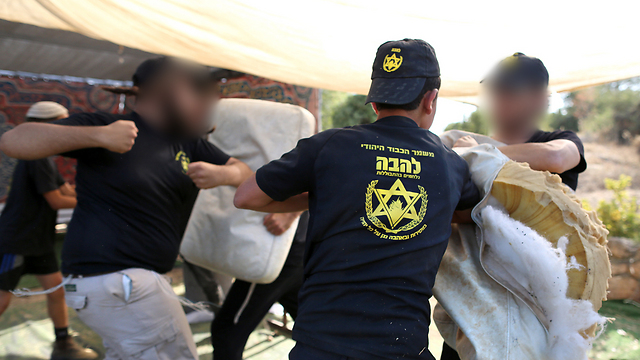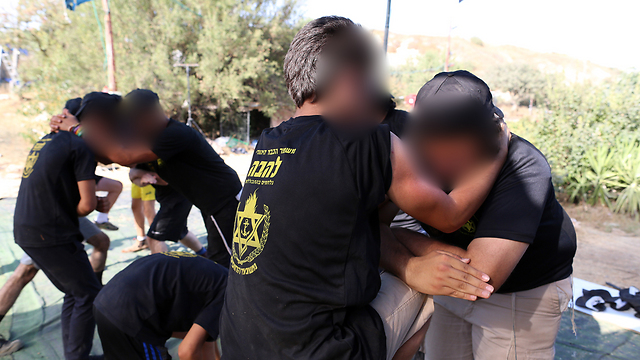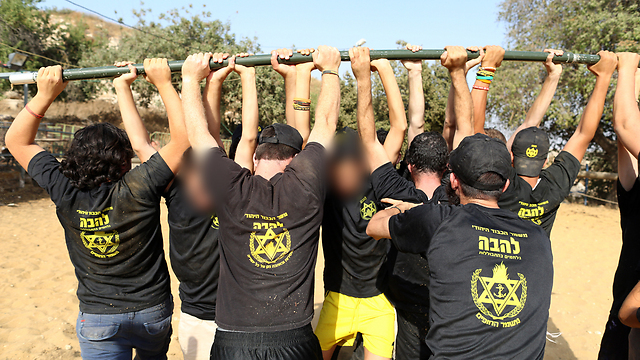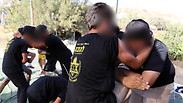
This is the camp’s second year running. Just this summer, the camp has had five cohorts due to high demand. Camp participants, aged 14 to 22 years old, come for three intense days of training.
One part of the program is focused on physical fitness and the IDF-developed self-defense system Krav Maga. The participants run, roll around on the ground, jump over obstacles, and learn how to defend themselves from attackers.
Another part of the course instructs the participants on how to deal with Arabs, and includes learning key phrases in Arabic. Head of Lehava, Bentzi Gopstein, provides the incendiary content against Arabs, Muslims, and even Christians.
According to Gopstein, "the goal is to have a pre-army program that would encourage young people to have a meaningful IDF service, and educate them to fight assimilation and love the land of Israel.”
One of the participants explains that "they teach us how to approach an Arab who is going out with a Jewish girl. I know how to say to him in Arabic 'give me your sister's number,' and then make it clear to him that he can’t be in contact with the Jewish girl anymore.”
Participants also undergo lessons in issues pertaining particularly to them, like how to withstand police interrogation. The lecturer is attorney Itamar Ben-Gvir, who represents quite a few right-wing youth detained over the threat they pose Palestinians in the West Bank, some of whom were even put on trial for criminal activity committed against Arabs.
Another class focuses on how to withstand Shin Bet interrogation and is taught by Noam Federman, an extreme right-wing activist who spent about nine months in administrative detention.
Federman starts his class with a question: “Who among you has been questioned by police?” Almost everyone in the room raise their hands. He alters his question with a smile: “Okay, so who actually hasn’t been questioned by police before?”
He then goes on to explain police questioning is child’s play compared to Shin Bet interrogation. “Unlike police questioning, where if you keep silent for a few days, they’ll eventually send you home—the Shin Bet has means and time; a lot of means and a lot of time. The interrogation by the Shin Bet is something completely different, and you must prepare for it differently.”
Federman explains, “The goal of a Shin Bet interrogator is to make the interrogatee completely dependent upon him for anything, completely needy. I remember being led into one of the interrogation rooms with a ski mask they put on me. They sat me down on a chair bolted to the floor, tied my hands, and I needed them even for a drink of water.
“Another time when they detained me, they left me in a small cell for a long time. The cell reeked because the toilet was a hole in the floor inside the cell, you couldn’t shower, and everything stank.
“The Shin Bet is no place for delicate people. But if you’re strong enough to stay silent and not let them play you—you’ll ruin their plans. After a few days they in which hung me out to dry, they were sure I’d want to go into the interrogation room, and when they called me in I told them ‘no.’ That ruined all of their plans completely,” he recounts.
Federman also tells his students about his friend, Yitzhak Pass, whose daughter Shalhevet was murdered in a shooting attack in Hebron when she was only ten-months-old. In 2003, Pass was caught along with another person with eight demolition blocks in their possession. They were arrested, tried and served a two-year jail sentence.
“I remember Yitzhak came to seek my advice after his arrest. I told him to say he found the demolition blocks and was just on his way to the police to hand them over,” Federman says.
He concludes his lesson with a warning. “During the investigation into the Duma arson, there was a guy we knew was going to be arrested. He declared to me that he wasn’t going to tell the Shin Bet interrogator a thing. Two days later he was arrested and then, after a few days of interrogation, he spilled the beans on everything. That’s why you need to set yourself a threshold that you could withstand.”
Ben-Gvir, meanwhile, is a celebrity at the camp. He explains to the teenagers their rights when it comes to police questioning or when they are arrested during protests, and he’s not modest about his own personal victories.
“Those who know the law and know how to work with the police, can also make money out of it,” Ben-Gvir says with half a smile. “In total, they paid me compensation of several hundreds of thousands of shekels. You just need to know the letter of the law. For example, you should know that a protest of less than 50 people doesn’t require permits, and you can’t be arrested for it. You can also demand the police officers to identify themselves.”
Camp operators don’t think there’s anything wrong with it. On the contrary. “We bring teenagers here and teach them values about Greater Israel and how to act against assimilation. This is a praiseworthy initiative that even the government should participate in its funding,” Ben-Gvir says.
Gopstein adds, “Everything done here is by the law. There is no use of weapons here. These teenagers are here to protect Jewish honor. We love the IDF, but we’re against the Shin Bet’s violent interrogations.”













